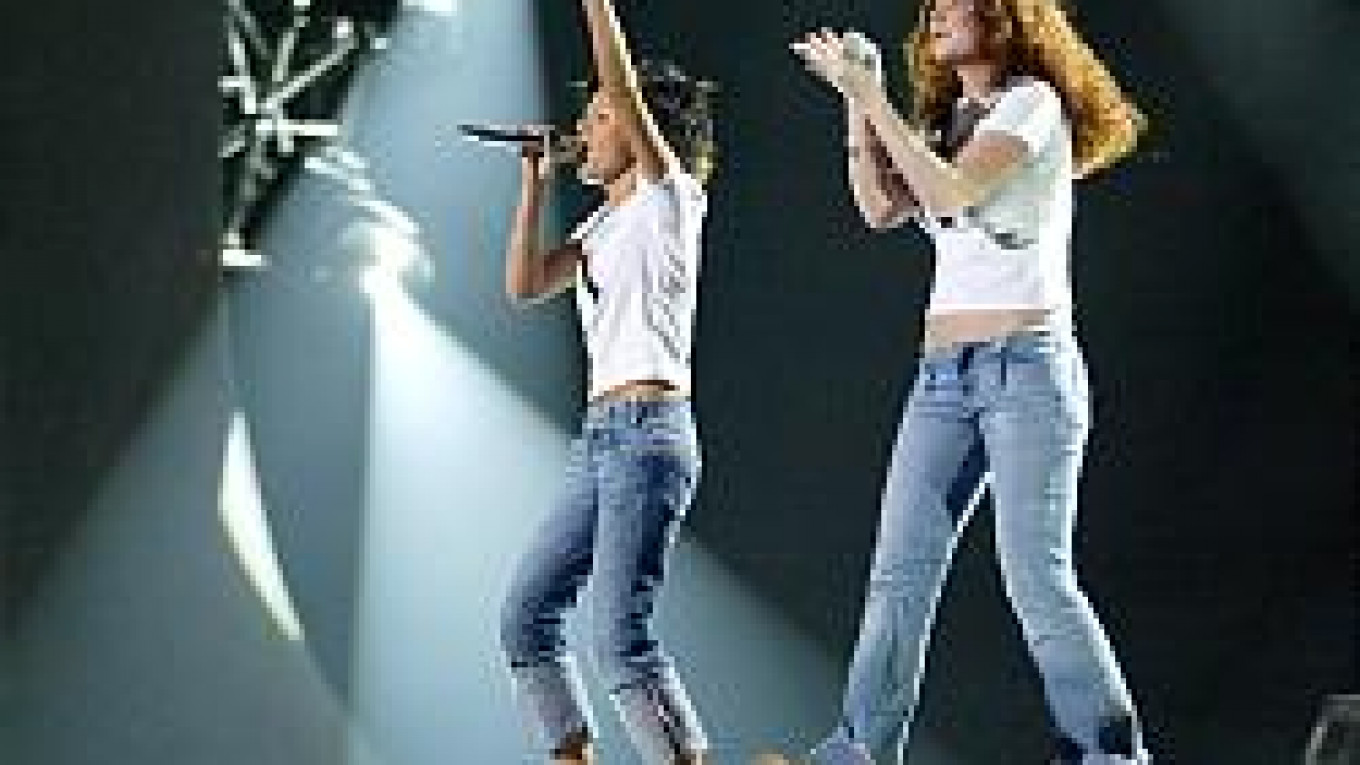Belgium took a close second, followed by Russian duo Tatu. The 48th annual event was held in Riga on Saturday.
Callers from across Europe cast their ballots by telephone and SMS to decide the winner of the contest, which featured performers from 26 countries singing a range of pop songs.
More than 150 million people were estimated to have watched the three-hour show Saturday night, and thousands more logged on to the Internet to see it via streaming video.
A classically trained soprano who has recorded songs with Ricky Martin and Jose Carreras, Erener delivered a sultry blend of rhythm-laden pop laced with hints of blues and Arabic-tinged hip hop.
"I was very excited. I could feel that we would win," she said after the results were announced.
Turkey's previous best was in 1997 when it finished third with Erener representing it then, too. The Istanbul native edged out a Celtic-flavored tune from Belgium's Urban Trad, which sang in a contrived language it calls "Sanomi," and Tatu, the provocative Russian teen duo heavily favored to win.
Erener sang the winning song, "Every Way That I Can," in English, angering Turks who wanted her to sing in Turkish. Erener refused, saying singing in Turkish would hurt her chances. Every winning song since 1991 has been performed in English.
Turkey has worked hard to establish its European credentials in hopes of joining the European Union in a few years.
Created in 1956 by the Geneva-based European Broadcasting Union, Eurovision has become one of Europe's most popular annual music events -- and the biggest pop music pageant of its kind in the world.
Few winners, except for Swedish supergroup ABBA in 1974 and Canadian chanteuse Celine Dion, who represented Switzerland in 1988, have been propelled to international fame and fortune.
Bookmakers had picked Tatu, two chart-topping Russian teenagers known for their flirtations with lesbianism, to win this year's contest.
Julia Volkova and Lena Katina, 18-year-olds whose passionate kisses while performing have garnered plenty of headlines worldwide, hinted they plan to shake up the event when they sing "Don't Believe, Don't Fear, Don't Ask," but the performance was free of any scandal, barring a brief kiss shared by the two on stage.
"There is no disappointment," said Katina, sipping a bottle of water in a backstage cafeteria. "We didn't expect anything here."
One notable flop was Britain's Jemini, which scored no points for the perennial favorite.
The second former Soviet bloc country to host the contest after Estonia last year, Latvia won the right to host the event when 22-year-old law student Maria Naumova won last year.
With Erener's win, Turkey will host next year's Eurovision contest.
A Message from The Moscow Times:
Dear readers,
We are facing unprecedented challenges. Russia's Prosecutor General's Office has designated The Moscow Times as an "undesirable" organization, criminalizing our work and putting our staff at risk of prosecution. This follows our earlier unjust labeling as a "foreign agent."
These actions are direct attempts to silence independent journalism in Russia. The authorities claim our work "discredits the decisions of the Russian leadership." We see things differently: we strive to provide accurate, unbiased reporting on Russia.
We, the journalists of The Moscow Times, refuse to be silenced. But to continue our work, we need your help.
Your support, no matter how small, makes a world of difference. If you can, please support us monthly starting from just $2. It's quick to set up, and every contribution makes a significant impact.
By supporting The Moscow Times, you're defending open, independent journalism in the face of repression. Thank you for standing with us.
Remind me later.


